- A new ‘Domesday Forest’ of more than 1 billion trees
- All our public woods distanced from the control of ‘Big Government’ and given full and lasting protection for ‘Big Society’
- A new, independent, publicly accountable body, ‘Forests for England’, with the resources and authority to lead on implementing this vision
Our Forests, the ‘ginger group’ of leading environmentalists, professional foresters and grassroots campaigners set-up in the wake of the Government’s plans to ‘dispose’ of all the 1,500 woods that make up the Public Forest Estate, is publishing its vision for a future where all England’s woods and forests are recognised collectively as a vital strategic economic and social resource. [1]
Our Forests’ vision includes the ambitious but achievable proposal for creating a new ‘Domesday Forest’: an overall area of woodland on a scale unseen since the time of the Domesday Book in 1086 – when 15% of England’s land area was wooded, compared to under 10% currently. This would mean planting 1 billion trees across over half a million hectares by 2050 – equivalent to creating 10 ‘new’ Forests of Dean, a dozen additional Thetford Forests, and replicating the community woods of the Mersey Forest around a further 50 urban fringes. [2]
Alongside planting ‘more trees’, Our Forests’ vision prioritises bringing the 60% of private woodlands that are currently neglected into active management – such that they provide maximum benefits to people, the economy and wildlife. [3]
Robust leadership, long-term commitment and secure resourcing are required to deliver this vision. Our Forests believes the Forestry Commission offers the foundations and skill-base for such a new, more independent body; freed from short-term political meddling and more accountable to the public. [4]
Dr Gabriel Hemery said,
‘Creating a new Domesday Forest is an ambitious, but wholly achievable target, and one which meets the aspirations of the over half million people who came out across the country against the disposal plans. Getting all our woods working, so that they provide the wealth of renewable resources and rich variety of wildlife they are capable of supporting, is vital. Our vision is about creating real jobs, boosting rural economies, and improving the environment and well-being for communities across England.
Where ministers saw assets for stripping, we see a national strategic resource – critical for helping the country curb and adapt to climate change and even more importantly, for demonstrating the scale of sustained effort required. [5] The benefits produced from delivering our vision are substantially greater than the costs. As it stands, the Public Forest Estate delivers goods and services worth £2 billion annually at a cost to each individual taxpayer of just 30p a year.’ [6]
Our Forests vision is being launched at a critical time:
- The Independent Panel on Forestry is holding the first ‘hearing’ (13/1/12) following the launch of its Progress Report and is beginning to shape more concrete recommendations to put to ministers in the spring. [7]
- Yet even as those recommendations are being drafted, the Forestry Commission is being forced to make 25% cuts – staff are being laid off; including key posts managing our public woods and forests. [8]
- Despite the halting of the Government’s wholesale disposal proposal, our public woods are not fully protected from disposal, and some are coming under the hammer. [9]
To accompany its vision, Our Forests is therefore putting 3 key demands to the Government:
1. No sales of any public woods and forests until full and lasting protection is given to the Public Forest Estate overall.
2. Stop the chopping of the Forestry Commission by stealth – the Independent Panel’s recommendations (due in spring 2012) will be academic if insufficient resources of staff and funds remain to put them into practice.
3. Repeal the law that states our public woods and forests are ‘owned’ by the Secretary of State (currently, Caroline Spelman who led the disposal proposal).
Rich Daniels of Our Forests said,
‘Ministers said their motivation behind their ill-conceived disposal proposal was to reduce the influence of ‘Big Government’ and to increase the involvement and influence of ‘Big Society’. Well, that’s what our vision proposes – get our public woods and forests out of the hands of distant, detached ministers only interested in short-term asset-stripping and protect them for everyone, for ever.
Contrary to ministers’ outdated prejudices, many people and communities value the Forestry Commission as part of their local ‘Big Society’, and are willing as taxpayers to support it in looking after our woods and forests’.[10]
Our Forests is pleased to be working with 38 Degrees, who are putting out our vision to their supporters for views and input to help shape a stronger and truly representative ‘People’s vision for England’s woods and forests’. [11]
For further information contact:
Robin Maynard: robin.maynard at btinternet dot com
Gabriel Hemery: gabrielhemery.com/about/contact
Rich Daniels: rich at handsoffourforest dot org
Notes to Editors
1. Our Forests’ vision document attached as a PDF. Our Forests was formed to ensure that the views of the more than half a million people and myriad grassroots groups who rose up in opposition to the reprehensible plans to sell-off or otherwise dispose of the Public Forest Estate in England are fully understood and taken into account by the Coalition Government and its appointed ‘Independent Panel on Forestry Policy’.
Individual members, in alphabetical order, are:
- Hen Anderson (Co-founder ‘Save Our Woods’, who also runs a smallholding and woodland on Exmoor)
- Richard Daniels (Chair of the grassroots campaigning group Hands off our Forest (HOOF) in the Forest of Dean)
- Dr Gabriel Hemery (chartered forester, co-founder and Chief Executive, the Sylva Foundation)
- Tony Juniper (independent environmental advisor, campaigner, writer and former Director of Friends of the Earth)
- Rod Leslie (former Chief Executive, Forest Enterprise)
- Robin Maynard (environmental campaign consultant)
- Jonathon Porritt (Founder Director Forum for the Future and former Chair of UK Sustainable Development Commission).
2. Domesday Forest – current planting rates are down to 2,500 hectares per year in England, compared to c. 6,500 hectares per year in the 1990s. However, Scotland has set a national planting target of 10,000 -15,000 hectares per annum, so creating 500,000 – 750,000 hectares of new woodland over the next 50 years. Translated to England, such a scale of ambition and planting would bring the country’s tree-cover back to around 15% of total land area, close to the woodland cover believed present at the time of the Domesday Book in 1086.
3. Over 60% of England’s private woods are under-managed – producing less than 40% of their annual potential harvest of timber, wood-fuel and other forest products – under-managed woods mean less wildlife too. Maximising the potential of those over 600,000 hectares of private woodland is an equal, if not greater, priority to creating new woodland. England’s woods and forests could support at least 200,000 jobs – double the current number.
4. Our vision considers several possible future models. These include the existing examples of Kew Gardens, a public body yet more detached from government; the transition British Waterways is making to become the Canal & River Trust; Staatsbosbeheer, the Forestry Commission’s more progressive Dutch counterpart.
5. Trees on the Public Forest Estate currently store about 48 million tonnes of carbon dioxide equivalent(MtCO2e) with a further 81 MtCO2e in the soil. This makes the Public Forest Estate the largest single biological carbon resource in England under government control. The PFE stores about one quarter of England’s annual emissions of greenhouse gases, at current market values worth £3.6 billion. http://www.forestry.gov.uk/pdf/eng-pfe-consultationdocument.pdf/$FILE/eng-pfe-consultationdocument.pdf
6. http://www.eftec.co.uk/spotlight/economicvalue-of-the-forestrycommission-estate-inengland
7. Independent Panel Hearing: Forestry National Workshop, chaired by the Right Reverend James Jones, Bishop of Liverpool, 13 January 2012, London. For further information contact: http://www.defra.gov.uk/forestrypanel/contact/ 0207 238 5852.
8. Forestry Commission ‘restructuring’ in progress:
25% cut in staff looking after the Public Forest Estate
19% cut in staff managing grants and regulation.
Reduction in the number of Forest Districts from 11 to 6:
New North District amalgamating Kielder Forest and Lakes covering all of Cumbria, Northumberland, Durham and north Lancashire (including Forest of Bowland.
North York Moors District remains as is.
New Central England District, including Sherwood, Northants, Cannock, Delamere, North West community woods, South Yorks community woods, national forest and Lincolnshire.
New East England District – East Anglia, Kent etc.
New South District – New Forest, Dorset, Surrey etc.
New West of England District – Devon, Cornwall, Dean and Marches.
New Districts above become operational in April 2012.
Other areas of activity under review:
Wildlife management – significant reduction in number of wildlife rangers (wildlife management = one of FC’s key successes over past two decades)
Education and Learning – plan to stop direct delivery or pull out (Over 170,000 school and educational visits are made to the Public Forest Estate each year).
9. Public woods leased to the Forestry Commission are being put up for sale see: http://saveourwoods.co.uk/articles/news/threat-to-the-quantock-hills/
The 15% of the Public Forest Estate that the government took legal advice that it could dispose of/sell without the changes of law it sought in the now dropped Public Bodies Bill remains vulnerable. There is no guarantee from Government that, whatever the Panel recommends, that this 15% will not be put back on the market.
Whilst the Government ended the public consultation on the overall disposal of our public woods and forests, it only temporarily halted the sales of 15% of the Public Forest Estate (which Defra lawyers advised was the maximum area possible without changes to the law), pending the recommendations of the Independent Panel. See: Parliamentary Briefing, The Forestry Commission and the sale of public forests in England, SN/SC/5734:
‘On 11 February 2011, Defra announced that these sales “will be temporarily suspended until extra protections on access and biodiversity are put in place. Once this has happened, the sales will go ahead”. It said that these extra protections were not connected to the public consultation on the rest of the public forest estate. Although the Government has halted the consultation on the future of the wider Public Forest Estate, it still plans to proceed with the sale of this land.’
10. “Reliance upon local volunteer community groups to take over the full running of local forests and woodlands is also quite unrealistic. Volunteers cannot realistically be expected to shoulder the continuing financial cost of forestry operations or the significant legal liabilities which ownership of woodland involves, particularly where there is extensive public access. Community groups need the support of a well-established, and adequately resourced national body, such as the FC, in order to play their own valuable part in multi-purpose forestry.” Response collated from Government’s aborted 2011 public consultation on the disposal proposals.
11. http://www.38degrees.org.uk/
Over the next few weeks and months, 38 Degrees will be sharing Our Forests’ vision paper among its members, to find out their views about our vision for the future of England’s forests. As Our Forests’ ideas develop in the future, we’ll be drawing on the input from 38 Degrees members and their perspectives will help inform our proposal for the future of England’s forests.
38 Degrees achieved over half a million signatures to its ‘Save Our Forests!’ petition against the Government’s plans to dispose of England’s public woods and forests.




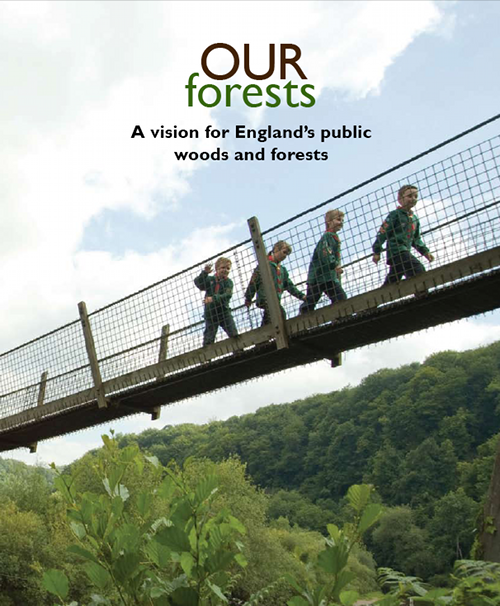









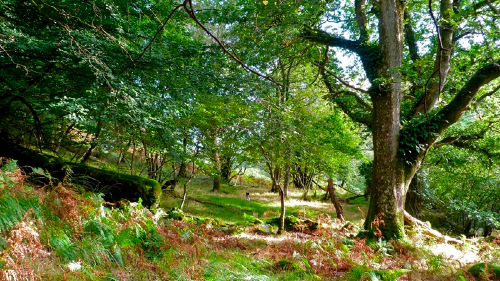
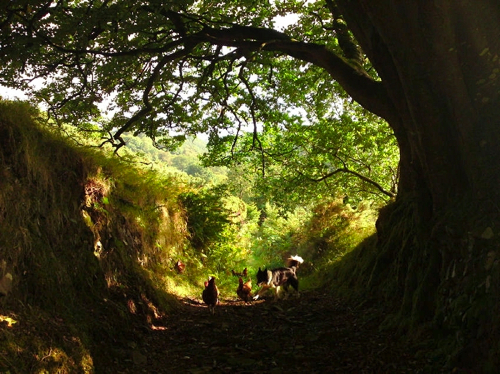


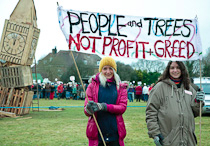


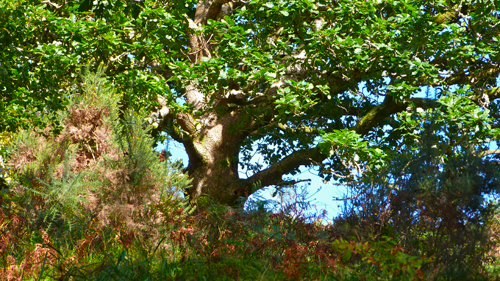

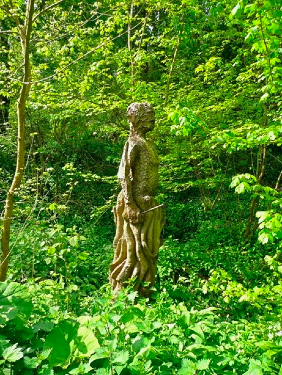




I’m afraid you’re far too late and clearly bonkers. I share your love of trees and plant a lot myself, but surely rather more important than increasing woodland is being able to eat. Our population has become so huge (and is going to get a lot bigger yet) that we will be crazy if we don’t save every existing open acre for agriculture. There is some scope for massed planting on moorland where agricultural productivity is low, but that’s about it.
What is entirely feasible – and would still meet much of your aims – is to plant much more along the thousands of mile of hedgerow, roadside and the innumerable odd corners that we do have, which as well as enhancing timber and amenity resources would add to the corridor-effect so important for wildlife. We should also impose strict import quarantine like other countries do, and improve the many existing woodlands where management is poor or non-existent (which is what Mrs Spelman was trying to do before you all went hysterical). We should also disabuse the planning, insurance and surveying professions of the wildly exaggerated claims of damage associated with forest trees in urban areas.
All these are sensible measures which could and should be adopted without undermining your credibiity.
In other words, get practical, get feasible, get real – please.
No, we’re not bonkers. Of course food is important – but what about water – too much and too little ? The world is very different from 1947 when Europe was starving and it was inconceivable Britain could ever be short of water. A few thoughts:
– we’re an urban, trading nation not a subsistence economy – its money from urban business that’ll allow us to eat.
– ‘food security’ should imply necessity: if we ate a ‘wartime’ diet (we’d be a lot healthier) and saved on waste Britain could be self sufficient in food tommorrow – so much of our grain is fed to animals at a nutritional loss of at least 4 to 1.
– farmers are quite ready, without any discussion, to convert to non-food and energy crops if it makes them more money – look at the yellow of oilseed rape this spring. More trees are another energy crop – and the argument that land can’t go back to food is rubbish – look at all the ancient woodlands grubbed up in the 60s and 70s.
– 500,000 ha is just 5% of our agricultural area, less than 1 decades change in agricultural productivity since 1945, alway upwards till very recently.
– The 2007 summer flood cost the economy more than the total agricultural subsidy for a year – we really do have to sort our values out and move into the 21st C.
{ 11 trackbacks }